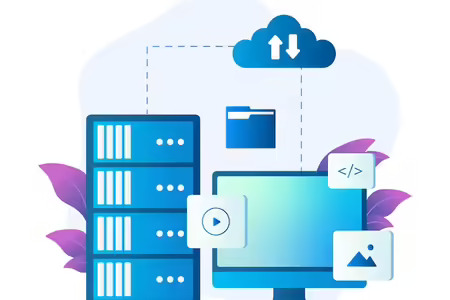Data Insights

Data insights play a crucial role in various fields, including business, healthcare, finance, marketing, and many others. They can help organizations make informed decisions, improve processes, optimize strategies, and identify potential opportunities or challenges. Here are a few key steps involved in generating data insights.
Data insights help organizations and individuals understand their operations, customers, and market trends better. These insights can lead to improved efficiency, targeted marketing strategies, and informed decision-making.
Data analysis is an iterative process, meaning that as new data becomes available or circumstances change, further analysis may be required to gain additional insights or validate previous findings.As data insights involve sensitive information, it is crucial to handle data responsibly, ensuring privacy and adhering to ethical guidelines.

-
Data Strategy and Roadmap: Consultants help businesses define their data strategy, identify key data sources, and create a roadmap for data collection, storage, and analysis.
-
Data Visualization and Reporting: Experts create interactive and visually appealing dashboards and reports that present data insights in a user-friendly manner.
-
Predictive Analytics: Consultants use statistical modeling and machine learning techniques to predict future trends, customer behavior, and business outcomes.
-
Customer Analytics: Consultants help businesses understand customer behavior, preferences, and needs to improve marketing and customer service strategies.
-
Decision Support Systems: Consultants design and implement decision support systems to aid executives and managers in making data-driven decisions.
-
Training and Support: Consultants provide training to business users and technical support to ensure successful implementation and usage of analytics solutions.

-
Deep Learning: A subfield of machine learning that uses artificial neural networks to process vast amounts of data and learn hierarchical representations, leading to state-of-the-art performance in various tasks like image and speech recognition.
-
Natural Language Processing (NLP): AI techniques that enable machines to understand, interpret, and generate human language.
-
Robotics: The integration of AI techniques into robots to enable them to perceive and interact with the physical world.
-
Expert Systems: AI systems that emulate the decision-making processes of human experts in specific domains.
- Machine Learning: A subset of AI that involves training algorithms on data to enable them to learn from patterns and make predictions or decisions without being explicitly programmed.

Snowflake:- It is popular among businesses and data-driven organizations for its ease of use, compatibility with various data sources, and ability to handle structured and semi-structured data. It enables companies to run complex data analytics, perform data transformations, and build data-driven applications.
It is a cloud-based data warehousing platform designed to manage and analyze large volumes of data efficiently. It provides a scalable, elastic, and fully managed solution for data storage and analytics in the cloud.
Databricks:- It is a powerful cloud-based data platform that integrates various tools to help organizations process, analyze, and visualize big data. It simplifies the process of building and deploying data-driven applications, making it an essential tool for data engineers, data scientists, and analysts.
It automates various tasks like cluster management, scaling, and monitoring, allowing users to focus on data analysis rather than infrastructure management.Databricks offers integrated data visualization tools that help users create interactive and insightful data visualizations.

-
Data Integration: These services allow businesses to consolidate data from multiple sources, such as databases, applications, and third-party systems, into a centralized repository.
-
Scalability: Cloud-based data warehouse services offer flexible scaling options, allowing organizations to adjust their storage and computing resources based on their needs and data growth.
-
Performance: Data warehouses are optimized for fast querying and analysis, providing quick access to data for reporting and analytics purposes.
-
Security: Data warehouse services typically come with robust security features to ensure data privacy and compliance with industry regulations.
- Cost-effectiveness: Cloud-based data warehouse services follow a pay-as-you-go model, where organizations only pay for the resources they consume, making it cost-effective compared to traditional on-premises data warehouses.
Empowering Data Engineers and Data Scientists
The initiative aims to empower aspiring data engineers and data scientists by providing comprehensive training, mentorship, and access to cutting-edge technologies, fostering a collaborative environment for learning and growth in the data-driven world.

Data Engineering

Data Science
🚀 Elevate your career 🚀
🌟 Join Our Team! 🌟
We’d love to chat and see if we can find something that’s a fit.
